
Shinzo Abe was a Japanese politician and statesman who served as Prime Minister of Japan and President of the Liberal Democratic Party (LDP) from 2006 to 2007 and again from 2012 to 2020. He was the longest-serving prime minister in Japanese history, serving for almost nine years in total. Abe also served as Chief Cabinet Secretary from 2005 to 2006 under Junichiro Koizumi and was briefly the opposition leader in 2012.
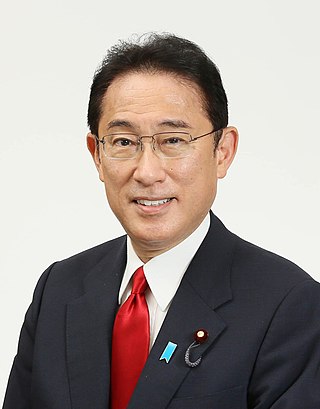
Fumio Kishida is a Japanese politician who has served as Prime Minister of Japan and President of the Liberal Democratic Party (LDP) since 2021. A member of the House of Representatives, he previously served as Minister for Foreign Affairs from 2012 to 2017 and as acting Minister of Defense in 2017. From 2017 to 2020, he also chaired the LDP Policy Research Council.

Canada–India relations also referred to as Indo-Canadian relations, are the bilateral relations between Canada and India. Canada and India have had longstanding bilateral relations, with shared traditions such as democracy. India has become one of the top source countries for immigration to Canada with Indian diaspora increasing to over one million as of 2022. According to Immigration, Refugees and Citizenship Canada (IRCC) data, of the more than 800,000 international students in Canada in 2022, 40 percent were from India, constituting the largest international student group in Canada. Bilateral trade between India and Canada has seen significant growth in recent years, reaching $8.16 billion in 2023. Both Canada and India are member nations of the Commonwealth association, and also part of G20, a group of world's largest economies.

India–Japan relations have traditionally been strong. The people of India and Japan have engaged in cultural exchanges, primarily as a result of Buddhism, since ancient times. The people of India and Japan are guided by common cultural traditions, including the shared heritage of Buddhism, and share a strong commitment to the ideals of democracy, tolerance, pluralism, and open societies.
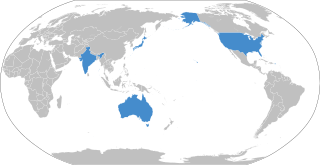
The Quadrilateral Security Dialogue (QSD), commonly known as the Quad, is a strategic security dialogue between Australia, India, Japan and the United States that is maintained by talks between member countries. The dialogue was initiated in 2007 by Japanese Prime Minister Shinzo Abe, with the support of Australian Prime Minister John Howard, Indian Prime Minister Manmohan Singh and U.S. Vice President Dick Cheney. The dialogue was paralleled by joint military exercises of an unprecedented scale, titled Exercise Malabar. The diplomatic and military arrangement was widely viewed as a response to increased Chinese economic and military power.
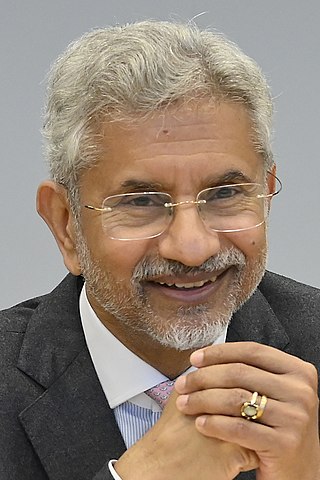
Subrahmanyam Jaishankar is an Indian diplomat and politician serving as the Minister of External Affairs of the Government of India since 30 May 2019. He is a member of the Bharatiya Janata Party and a Member of Parliament in the Rajya Sabha since 5 July 2019. He previously served as the Foreign Secretary from January 2015 to January 2018. He became the second ever diplomat to be appointed as India's External Affairs minister, after Natwar Singh.
Nippon Kaigi is Japan's largest ultraconservative and ultranationalist far-right non-governmental organization and lobbying group. It was established in 1997 and has approximately 38,000 to 40,000 members as of 2020.
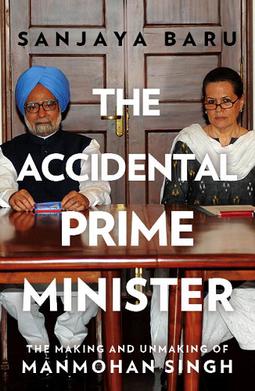
The Accidental Prime Minister: The Making and Unmaking of Manmohan Singh is a 2014 memoir by Indian policy analyst Sanjaya Baru, who was Prime Minister Manmohan Singh's media advisor from May 2004 to August 2008. Published by Penguin India, the book alleges that Singh was not entirely in control of his cabinet—or even the Prime Minister's Office (PMO). Instead, significant power was wielded by the Congress party's president Sonia Gandhi, to whom Singh was completely "subservient". "There cannot be two centres of power", Baru remembers Singh explaining to him, "That creates confusion. I have to accept that the party president is the centre of power. The government is answerable to the party."

Sanjaya Baru is a political commentator and policy analyst. He served as Secretary General of the Federation of Indian Chambers of Commerce and Industry (FICCI) until his resignation in April 2018. Prior to this, he was Director for Geo-Economics and Strategy at the International Institute of Strategic Studies. He was Prime Minister Manmohan Singh's media advisor and chief spokesperson (PMO) from May 2004 until August 2008. He has also served as associate editor at The Economic Times and The Times of India, and then chief editor at Business Standard. Baru writes a column for Civil Society Magazine called Delhi Darbar. His father B. P. R Vithal was Finance and Planning Secretary during Dr. Manmohan Singh's tenure as Secretary of Finance in the Government of India.

The foreign policy of the Modi government is associated with the policy initiatives made towards other states by the current government of India after Narendra Modi assumed the office of prime minister on May 26, 2014.

The most significant initiative made by the Narendra Modi government is the focus on neighbouring countries and major Asian powers coupled with emphasizing on the two decades old Look East policy. Asia being the major focus area of his foreign policy, Modi and his foreign minister chose several Asian countries for their initial bilateral visits. He has made state visits to Bhutan and Nepal and Japan within the first 100 days of his government and also hosted Asian leaders like former Prime Minister Tony Abbott of Australia, President Xi Jinping of China and Prime Minister Nguyễn Tấn Dũng of Vietnam, apart from inviting SAARC leaders in his inauguration ceremony. External Affairs Minister Sushma Swaraj has also made official visits to several Asian capitals like Dhaka, Bangladesh, Kathmandu, Nepal, Naypidaw, Myanmar, Singapore, Hanoi, Vietnam, Manama, Bahrain, Kabul, Afghanistan, Dushanbe, Tajikistan, Malé, Maldives, Abu Dhabi, United Arab Emirates, Seoul, South Korea and Beijing China.

Shvetha Jaishankar is an Indian model, author, entrepreneur, writer, dancer and beauty pageant titleholder. She won the title at the Femina Miss India International 1998 and later was crowned as the second runner up at Miss International 1998 held in Tokyo.
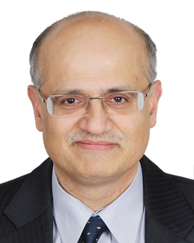
Vijay Keshav Gokhale IFS, born 24 January 1959, is a retired Indian diplomat and the 32nd Foreign Secretary of India. Gokhale previously served as the Ambassador of India to China.

The Accidental Prime Minister is a 2019 Indian Hindi-language political film directed by Vijay Ratnakar Gutte and written by Mayank Tewari, based on the 2014 memoir of the same name by Sanjaya Baru. It was produced by the Bohra Bros under Rudra Production (UK), in association with Jayantilal Gada under the banner of Pen India Limited. It stars Anupam Kher as Dr. Manmohan Singh, the 13th Prime Minister of India from 2004 to 2014 under the United Progressive Alliance.

Pradeep S. Mehta is the Secretary General of Consumer Unity & Trust Society (CUTS), a non-profit organisation that focuses on providing the poor with access to developmental opportunities. Mehta founded CUTS in 1983 and helped the organisation establish its presence in seven countries around the world. Mehta has been an active member of high-level panels on policies for World Trade Organisation (WTO) and the Government of India.
SAGAR, used as a backronym or reverse acronym which stands for Security and Growth for All in the Region, is a label used by the Prime Minister and Government of India for India's vision and geopolitical framework of maritime cooperation in the Indian Ocean region. Sagar means 'ocean' or 'sea' in multiple Indian languages. Since the first usage of the phrase in 2015 at Port Louis by Prime Minister Narendra Modi the term has been adapted to include more elements such as linkages with the Indo-Pacific region.

Free and Open Indo-Pacific is an umbrella term that encompasses Indo-Pacific-specific strategies of countries with similar interests in the region. The concept, with its origins in Weimar German geopolitics, has been revived since 2006 through Japanese initiatives and American cooperation.
Shubhra Gupta is an Indian film critic who writes for The Indian Express. She received the Ramnath Goenka Award for Best Writing on Cinema in 2012. She was a member of the Central Board of Film Certification from 2012 to 2015. She is the author of 50 Films That Changed Bollywood, 1995–2015.

On 8 July 2022, Shinzo Abe, the former prime minister of Japan and a serving member of the Japanese House of Representatives, was shot to death while speaking at a political event outside Yamato-Saidaiji Station in Nara City, Nara Prefecture. Abe was delivering a campaign speech for a Liberal Democratic Party (LDP) candidate when he was fatally shot by 41-year-old Tetsuya Yamagami with an improvised firearm. Abe was transported by a medical helicopter to Nara Medical University Hospital in Kashihara, where he was pronounced dead.

Why Bharat Matters is a 2024 non-fictional book written by Indian politician and author S. Jaishankar, and published by Rupa Publications. Jaishankar was the incumbent Minister of External Affairs of the Government of India in the Second Modi ministry at the time of publishing.

















